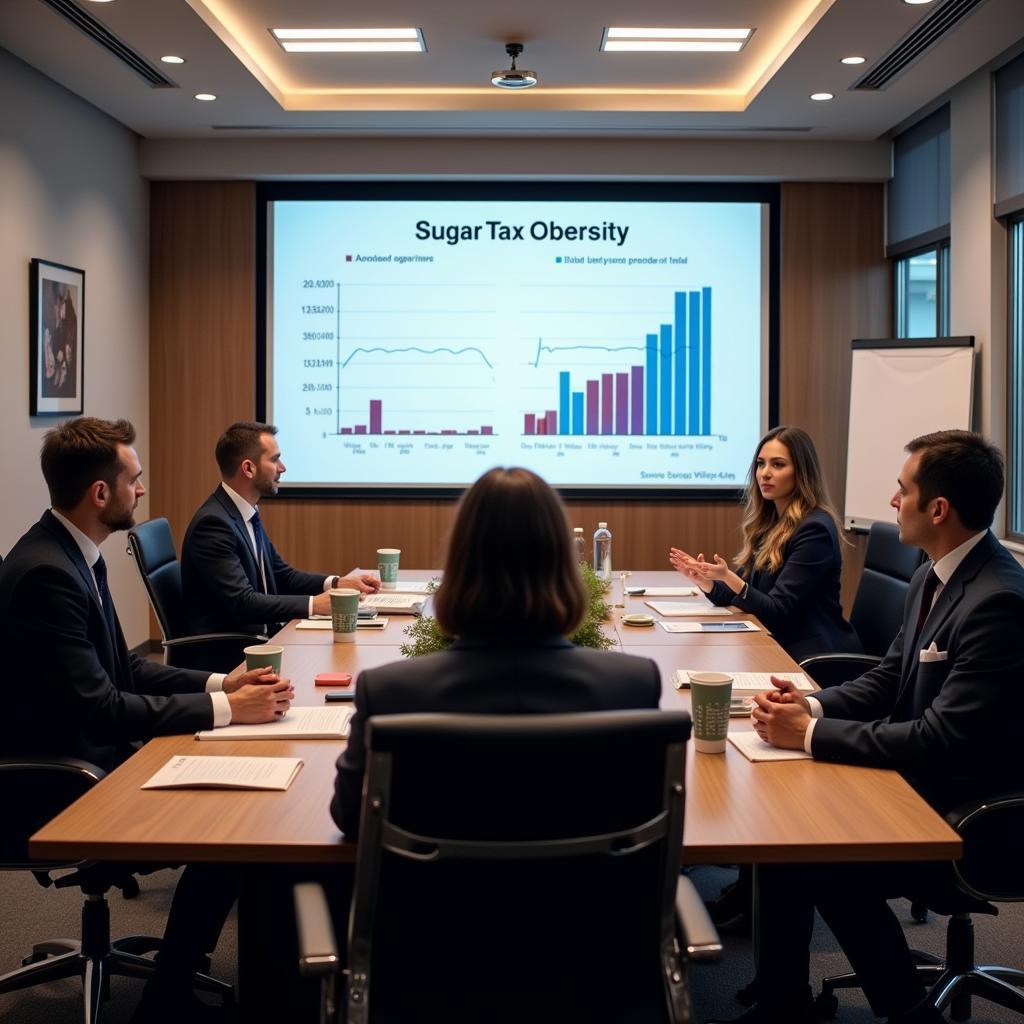Sugar taxes have become an increasingly common topic in IELTS Writing Task 2, appearing in various forms over the past few years. This trend reflects growing global concerns about public health and government intervention in dietary choices. Similar to how taxes influence financial decision-making, the debate around sugar taxes presents complex arguments about effectiveness and implementation.

Analyzing the Task Question
Some people believe that governments should impose higher taxes on sugary drinks and unhealthy foods to encourage people to make healthier choices. To what extent do you agree or disagree with this view?
This question requires candidates to evaluate the effectiveness of fiscal measures in promoting public health, similar to discussions about the role of governments in promoting healthy lifestyles.
Sample Essay 1 (Band 8)
The implementation of increased taxation on sugary beverages and unhealthy food items as a means to promote better dietary choices has gained significant traction worldwide. While some argue against such intervention, I strongly agree that this approach can effectively influence consumer behavior and improve public health outcomes.
Firstly, higher taxes on unhealthy products can significantly impact purchasing decisions. When faced with elevated prices, consumers naturally tend to seek more affordable alternatives, which in this case would be healthier options. For instance, Mexico’s sugar tax implementation in 2014 resulted in a substantial decrease in sugary drink consumption, particularly among lower-income populations who are most vulnerable to diet-related health issues.
Furthermore, revenue generated from these taxes can be channeled into public health initiatives, creating a positive feedback loop in healthcare improvement. This approach aligns with advantages of universal healthcare systems, where preventive measures play a crucial role. For example, the funds could support health education programs or subsidize nutritious food options, making them more accessible to all socioeconomic groups.
However, the effectiveness of such taxes depends heavily on proper implementation and supporting measures. Governments must ensure that should public health programs focus on preventive care through comprehensive strategies including education and awareness campaigns. Additionally, consideration must be given to preventing unintended consequences such as cross-border shopping or the emergence of black markets.
In conclusion, while sugar taxes alone cannot solve all dietary health issues, they represent a valuable tool in the broader strategy to promote public health. When combined with other measures, these fiscal policies can effectively guide consumers toward healthier choices while generating resources for health promotion initiatives.
Sample Essay 2 (Band 6.5)
The question of whether governments should use higher taxes on unhealthy foods and drinks to make people choose better food options is complex. I partly agree with this idea because it can help in some ways but also has some problems.
One good thing about taxing unhealthy foods is that it makes people think twice before buying them. When something becomes more expensive, people usually try to find cheaper options. This means they might choose water or fresh juice instead of soft drinks. Also, the extra money from taxes can help pay for health programs in schools and hospitals.
However, there are some problems with this approach. Poor people might still buy unhealthy food because they don’t have enough money for healthy options, which are often more expensive. Also, some companies might try to make their products cheaper in other ways, which could make them even less healthy. This relates to why should governments regulate advertising of unhealthy foods.
The government should also do other things besides just raising taxes. They need to teach people about healthy eating and make sure healthy food is available everywhere. Sometimes, people eat unhealthy food because they don’t know how to cook healthy meals or don’t have time to prepare them.
In conclusion, while higher taxes on unhealthy foods can help encourage better choices, it should be part of a bigger plan that includes education and making healthy food more available to everyone.
Key Vocabulary
- Fiscal measures (n.) /ˈfɪskəl ˈmeʒəz/ – financial actions taken by government
- Implementation (n.) /ˌɪmplɪmenˈteɪʃən/ – the process of putting a plan into action
- Socioeconomic (adj.) /ˌsəʊsɪəʊˌiːkəˈnɒmɪk/ – relating to social and economic factors
- Cross-border shopping (n.) /krɒs ˈbɔːdə ˈʃɒpɪŋ/ – purchasing goods in neighboring countries
- Comprehensive (adj.) /ˌkɒmprɪˈhensɪv/ – complete; including all aspects
- Subsidize (v.) /ˈsʌbsɪdaɪz/ – support financially
- Unintended consequences (n.) /ˌʌnɪnˈtendɪd ˈkɒnsɪkwənsɪz/ – unexpected results
- Emergence (n.) /ɪˈmɜːdʒəns/ – the process of coming into existence
For practice, try writing your own essay on this topic and share it in the comments section. Consider also exploring related topics such as junk food advertising regulations or government intervention in public health matters.